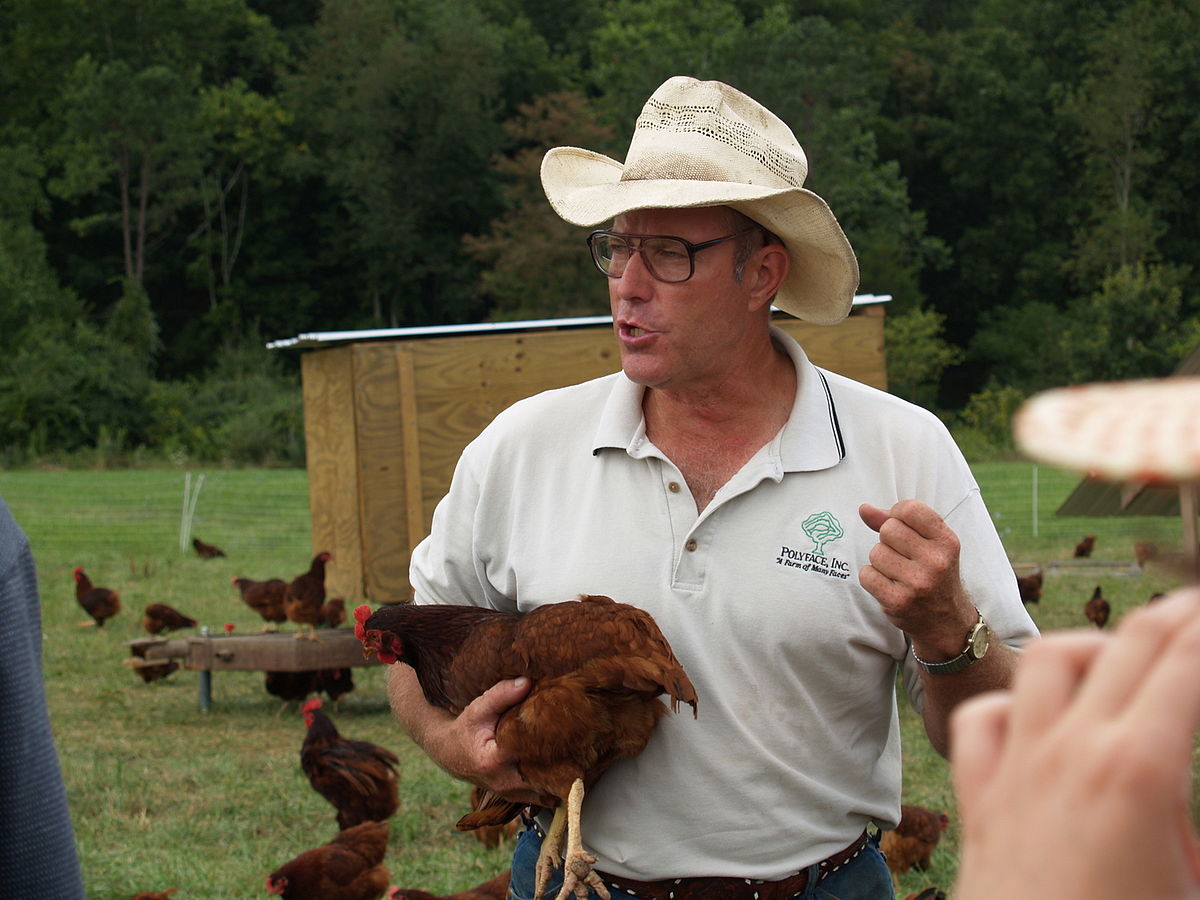What I found most interesting and thought provoking about this week’s lessons was the TED Talk video of Joel Salatin discussing about how he transformed his barren, wasteland of a farm into a paradise of abundance through the practice of regenerative farming solely using biological methods. By reintroducing organic matter into the soil, growing a variety of crops, and by raising animals on his farm, Salatin was able to literally heal the land and restore the top soil of his farm. Something remarkable to me in particular about Salatin’s farm was the fact that the crops and animal products that he was able to produce were so unbelievably nutrient-rich. This really puts in perspective how growing monocultures and animals in an industrial fashion with tons of added nutrients and other chemical additives simply does not match up to nature’s potential to create the healthiest and most nutritious food imaginable.

Joel Salatin holds a hen during a tour of Polyface Farm. Source: https://www.flickr.com/photos/54418876@N00/4227489002/
Regarding the age of nutritionalism and Michael Pollen, I find that this topic lands close to home for me. I work part-time at Whole Foods where I fully experience food first-hand in both the traditional and non-traditional sense. Since I am a cashier, I hear about all the latest food trends (“fads” if you will) that are supposedly healthy and good for your body and mind. From reading In Defense of Food, I have been trained to view these food trends with a skeptic’s eye and not fall for marketing schemes or social waves. I will take time to further explore whether primary research experiments have documented significant health benefits as a result of these food trends before I decide to partake in them along with my customers. For better or for worse, Pollen has taken me on quite the ride when it comes to experiencing the teachings of his novel directly in my workplace at Whole Foods.
